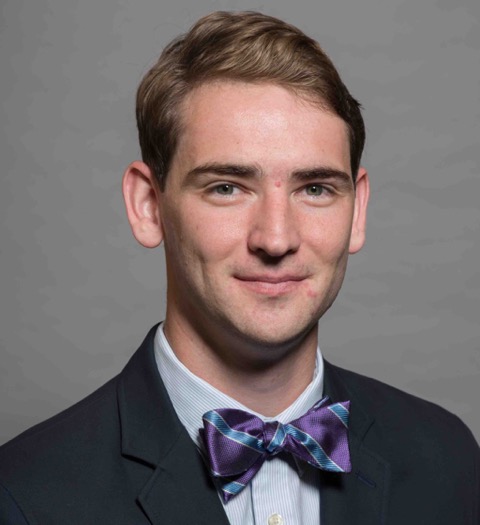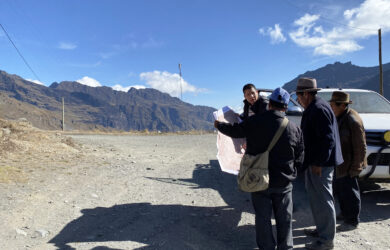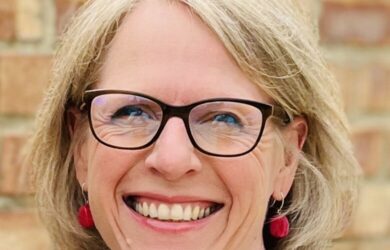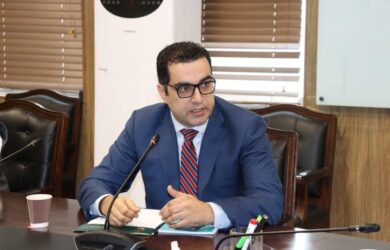News

Benjamin Cocanougher
- Alumni
- United States
- 2016 PhD Zoology
- St Catharine's College
I grew up catching praying mantises and damselflies in rural Kentucky. As an undergraduate at Centre College, I majored in Biochemistry and Molecular Biology; I spent my summers taking care of sick children at the Center for Courageous Kids and doing research in organic chemistry and neuroscience. I matriculated directly to the University of Rochester School of Medicine and Dentistry and completed my first three years of medical school. I then moved to Janelia Research Campus as a HHMI Medical Research Fellow; there I studied the neural and genetic bases of behavior. As a PhD student in Zoology, I will study adaptive behavior. All animals integrate information about past experience into future decisions; this is the basis of learning and memory. I am proposing to write a specific memory and read the memory trace in the brain. I will use the fruit fly as a model organism. By understanding mechanisms of memory storage, we can begin to investigate changes in memory formation in disease; this may allow us to develop rational therapies for disorders of memory formation, including autism and Alzheimer’s disease. After completing my PhD, I will return to finish my last year of medical school and pursue a career as a child neurologist and neuroscientist, using my lab to better understand the patients I see in clinic.
Previous Education
Centre College
- Share
Latest News
Why AI needs to be inclusive
When Hannah Claus [2024] studied computer science at school she soon realised that she was in a room full of white boys, looking at posters of white men. “I could […]
New book deal for Gates Cambridge Scholar
A Gates Cambridge Scholar has signed a deal to write a book on Indigenous climate justice. The Longest Night will be published by Atria Books, part of Simon & Schuster, […]
Why understanding risk for different populations can reduce cardiovascular deaths
The incidence of cardiovascular disease (CVD) – the number one cause of death globally – can be reduced significantly by understanding the risk faced by different populations better, according to […]
How can we create a more tolerant world?
Three Gates Cambridge scholars debate how we can create a more tolerant world in the sixth episode* of the podcast So, now what?, launched today. Alina Utrata, José Izquierdo and […]
Building Indigenous people’s citizenship rights: the role of heritage
Oscar Espinoza Martin [2024] sees archaeology and cultural heritage as tools for strengthening Indigenous people’s sense of citizenship. “It is important how people feel about their past and how they […]
Scholar appointed VP of the Human Frontier Science Program
A former Gates Cambridge Scholar has been elected a Vice President of the Human Frontier Science Program (HFSP), an international programme funding excellent frontier research in the life sciences. Christian […]
Inside Unit X
A Gates Cambridge Scholar has co-authored a book which gives an inside look at Unit X, the elite unit within the Pentagon that brings Silicon Valley’s cutting-edge technology to America’s […]
Gates Cambridge welcomes new Interim Director
Dr Holly Tilbrook has been appointed Interim Director of Gates Cambridge. Currently Deputy Director in the Academic Centres Division at the University of Cambridge, Dr Tilbrook joins Gates Cambridge in […]
How can we strengthen political legitimacy in a polarised world?
Three Scholars debate how we can strengthen political legitimacy in a polarised world in the latest episode of the Gates Cambridge podcast, out today. Promise Frank Ejiofor [2022] who is […]
Towards better public service delivery in Pakistan
Rafi Kakar [2024] is keen to contribute to better public service delivery and development outcomes in Pakistan by employing a research approach that blends theory with the realities of public […]

















